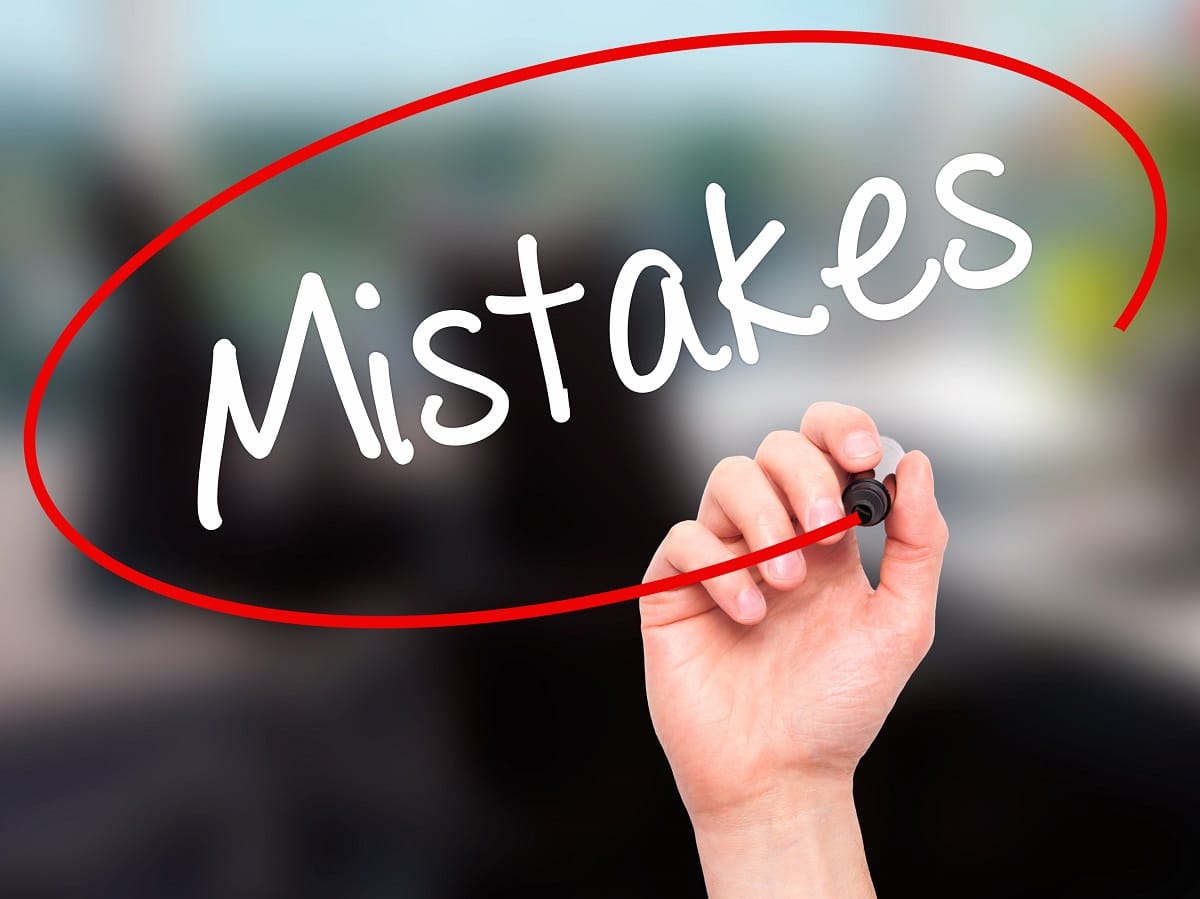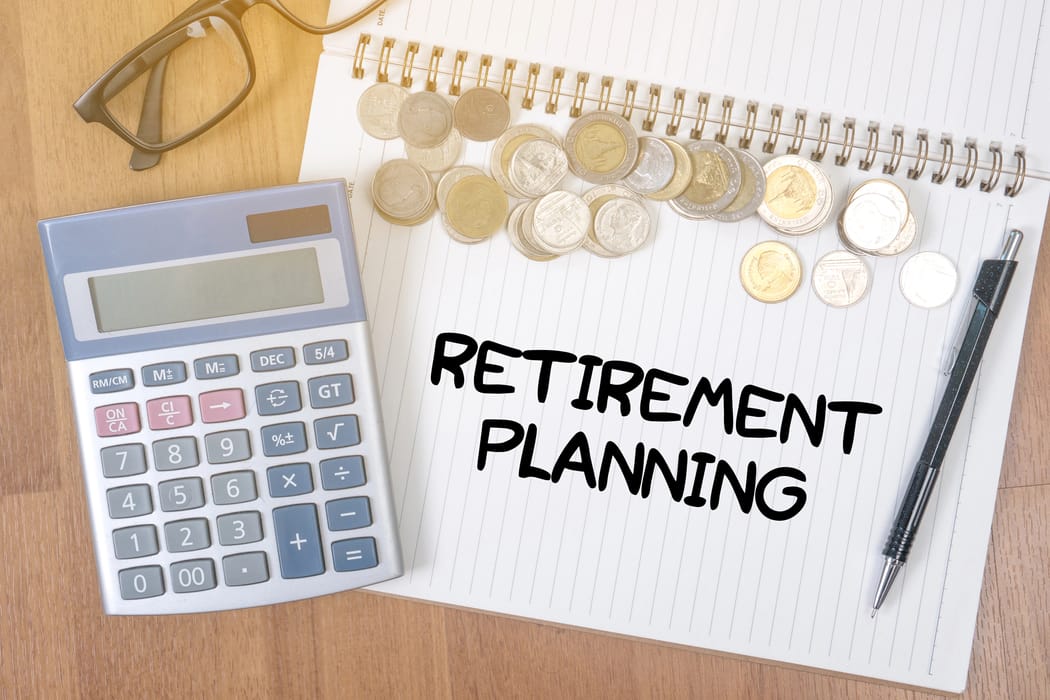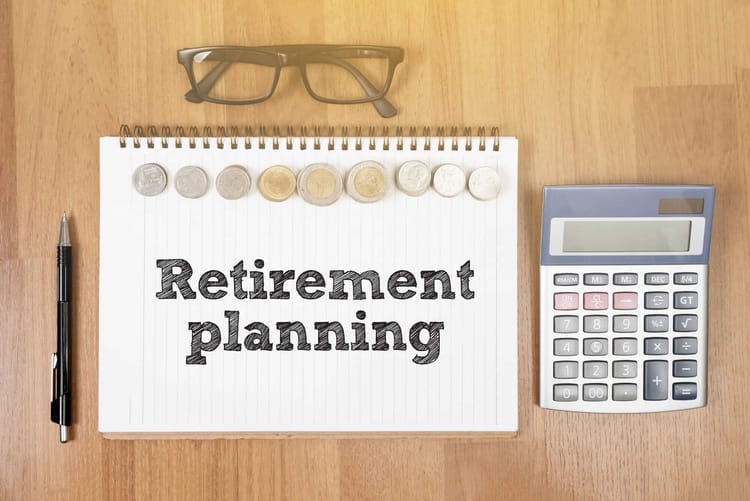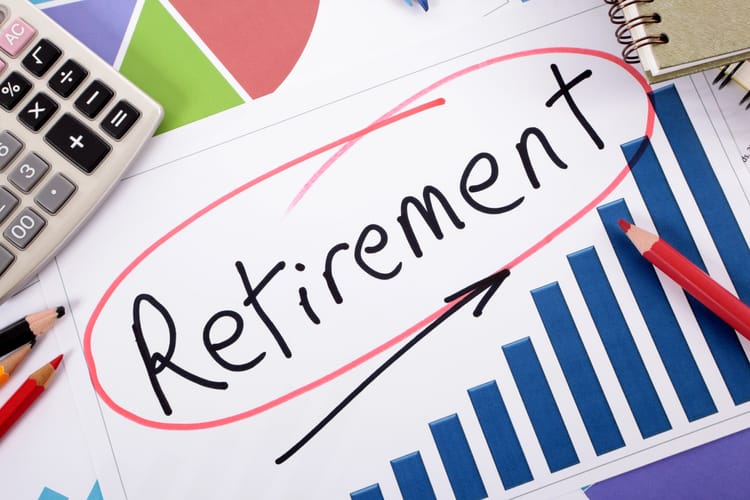Getting older and reaching retirement age is a difficult transition. Planning for retirement while identifying and avoiding common mistakes will help make the transition easier and open the way to stress-free retirement.
From not having a plan and starting it too late to cashing out savings and believing you will never retire – here are the 20 worst retirement planning mistakes. From this article you’ll explore:
- Mistakes you can often face while planning retirement,
- Dangers of such situations can be, and
- Tips to avoid the most common retirement mistakes.
Having No Retirement Plan
Retirement is a transitional period, one in which most aspects of our lives change. Yet many of us have no plan for the big event. This is one of the most common retirement mistakes to avoid. While the best time to start planning is as early as possible, today is better than tomorrow, and tomorrow is better than never.
What does retirement planning look like? Here is a rough outline to consider:
- Take stock of your assets and your liabilities. Deduct your liabilities from your assets to arrive at your net worth.
- Calculate what you expect your net worth to be at retirement. You can do this by forecasting your earnings growth until retirement, and estimate returns on investments such as stocks, rental property, etc.
- Calculate income you will receive in retirement from sources such as state/government pension, company pension plans, or personal (third pillar) plans such as PEPP, etc.
- Create a clear and complete overview of your current living expenses and think about how they will change after retirement.
Just taking these few simple steps will give you an idea of what your income/expense ratio is now and how it might look once you stop working.
Keep reading for other factors to consider in your plan and retirement blunders to avoid.

Starting Your Retirement Planning Too Late
As mentioned above, ideally you want to start retirement planning as early as possible. Doing so gives you maximum flexibility and the most time to assure you have sufficient funds and avoid costly retirement mistakes.
One of the best ways early planning can help you avoid retirement issues is the effect time has on compounding (this means that your asset's earnings from capital gains or interest reinvest and generate additional revenue). Sounds complicated, but you can easily imagine it with an example.
Let’s look at it by comparing person A, who starts retirement planning and investing at age 25, with person B, who starts at age 45. Person A earns little and can only afford to invest 50 Euros per month, while person B has significantly higher earnings and can put aside 200 Euros per month. They invest in the same fund which has a 6% annual yield, compounded quarterly. Both will retire at age 65 and both will increase their monthly contributions by 10% each year. The two tables below show the results of their investments.
As we can clearly see, even though person A had far less initial monthly contribution, their investment has grown to 580K Euros versus person B’s funds reaching only 220K despite much higher monthly contributions.
Another advantage of starting early is having time to adjust should your calculations prove that you will not have enough in retirement. Such adjustments could be finding ways to earn more, spend less, pay down debt and make better investment choices.
Not Knowing How Much You Need to Retire
While not knowing how much money we need may seem a simple retirement mistake to avoid, it does require a bit of research and calculation and is a key component of your retirement plan. One common mistake made is thinking in terms of an absolute number. Given our individual needs however, it is best to focus on expected income streams and known & unknown expenses.
Also consider that the amount may change based on future developments, life choices and preferences as well as family dynamics.
If you are uncomfortable with this or any other aspects of your retirement planning, consider hiring a financial adviser.
Investing Unwisely
Selecting high quality investments is a critical component of wealth building and retirement planning alike. Avoiding unwise investments does require a bit of work. While the scope of this article is not to provide individual investment advice and you should always do your own due diligence in selecting your investments, here are a few factors to consider.
- Be careful who you listen to. Advice is often free or cheap, good advice is not.
- Consider the long-term history of the investment. How did it perform during different economic cycles?
- Diversify. Most financial advisors consider having assets in different classes important. One of the biggest retirement mistakes is putting too much money in only one asset type which may be vulnerable to geopolitical or macroeconomic risks.
- Keep an eye on technology trends. Making even a small investment in the right company, for example, one on the forefront of an emerging technology, can have an outsized impact.
Poor Tax Planning
No list of “What not to do in retirement” would be complete without this often-overlooked aspect of retirement planning. As the old saying goes: “It’s not just what you make, it's what you keep”. And what we keep is what is left after paying taxes.
Many would-be retirees assume they will be able to enjoy their retirement free of tax, but this is simply not the case in most countries. Just how large your tax liability will be will depend on a variety of factors, and it is well worth consulting with a tax specialist to get a good picture of your personal situation. Also, keep in mind that tax laws can and do change.
Some topics to consider here are:
- Tax on state and company pension schemes
- Taxes on investments (some investment vehicles are more tax advantageous than others, such private pensions)
- Inheritance taxes
- Estate taxes
Finally, if you have a sense of adventure and are OK being away from family, you can consider taking up residence in a country with a more favourable tax structure than your home nation.
Cashing out Savings
Unforeseen things happen to all of us, and when they do, we may need funds urgently. Drawing down our savings to deal with a financial emergency, however, should be considered very carefully, especially as we get older, to prevent retirement issues later on. If you cannot find another way to address the need and must tap your savings, have a firm plan in place on how you will replenish the funds.
Burning Through Your Retirement Savings
Once you do reach retirement age, you may well feel it is time to reward yourself with a big splurge. Maybe it's a cruise, a new car or that dream house. But caution in spending is advisable. Once your income is limited, whatever liquid assets you have are best partitioned to last. As part of that retirement plan you can factor in an annual maximum drawdown and then try to stick to it, even if it means resisting those temptations.
Not Implementing Estate Planning
Many of us find the reasons behind estate planning difficult to consider, but the reality is that none of us will live forever, and the odds of becoming frail and/or incapacitated in some way only increase with age. A thorough estate plan will include provisions for caring for yourself and your assets, as well as leaving clear instructions for the family. Here are a few common considerations for estate planning:
Specify instructions and allocate funds to your own care in the event you become incapacitated. This should include a power of attorney for someone to make decisions on your behalf.
- Draft a will and ensure it meets the legal requirements of your home country.
- Find a reputable estate planning attorney.
Not Planning for Medical Expenses
Medical expenses can really add up, especially in the event of severe illness. While none of us enjoy contemplating the possibilities, not having a plan on how to deal with such expenses can be one of the biggest retirement mistakes we can make and be the difference between enjoying our golden years in financial comfort or worrying about having access to the right care.
While Americans are more familiar with exorbitant medical costs than most Europeans, certain situations may arise where access to cutting-edge medical technology is only available for a high price. So check with your doctor and do the research beforehand, and then adjust your plan according to the costs involved.
Driving Up Debt or Carrying Debt into Retirement
Einstein once supposedly said about interest that “…he who understands it, earns it ... he who doesn't ... pays it.”
While too much debt is never a good thing, a certain amount, when taken on judiciously and used cleverly, can catapult our finances in good times. But taking debt into retirement is a dangerous practice and best avoided. As our ability to generate additional income narrows, the cost of interest can quickly become an outsized burden.
Consider paying off all debts prior to retiring, including your home mortgage, to assure peace of mind in the later years. Once retired, take on debt only if you can earn a higher yield with your money elsewhere. For example: If you have an 8% annual dividend income and you can borrow money at 4% interest, it makes sense to do so. What you mean I guess if you take out money for 4% and put it into anything that reliably generates more than 4% return, then it can be considered.
Not Participating in Your Employer’s Second Pillar Plan
If you are lucky enough to work for a company which offers a matched retirement contribution, or “Second Pillar” plan (known in the US as 401(k), not taking advantage of it is one of the simplest retirement mistakes to avoid. It is practically free money and comes with its own tax advantages.
Most plans work by the employer matching your pre-tax contributions, up to a certain maximum percentage of your income. This means you get a tax break by reducing your taxable income and, at the same time, additional remuneration from your employer. It’s like getting a free raise. Participating in even the worst second pillar plans is better than nothing.
Unlike in the US where most mid-to large employers offer a 401(k), second pillar plans in Europe are specific to the country and/or employer so best to check on availability.
The UK’s Lifetime ISA is a similar plan, but instead of employer matching, the UK government pays you 25% of your deposits capped at £1.000 per year: see Lifetime ISA [1] for more information.
Borrowing From Your Retirement Account
Many retirement plans, both corporate and private (2nd or 3rd pillar) allow you to take out a loan from the funds held on your behalf and pay it back with interest, to yourself. It does sound tempting, but there is a catch – one which makes borrowing one of the often made retirement planning mistakes.
You see, whatever money you take out as a loan from your plan does not earn you dividend income, nor does it enjoy capital appreciation. Unfortunately, taking out loans from retirement funds is common practice, often to finance discretionary spending. But it effectively amounts to stealing from your future self.
Paying High Retirement Account Fees
Most retirement accounts form part of managed funds. There is usually a group of money managers who make decisions on where to allocate the fund’s capital. The level of management activity will vary widely between funds, and this work does not come for free. The fund’s managers collect fees for their work, and these fees are usually not related to the performance of the fund. They get their fee regardless of whether the fund’s assets increase in value or not.
While most countries’ laws require the fee structure be displayed and made available to the client, not all retirement funds are forthcoming with the information, especially if their fees are high.
If you have a choice in retirement funds, take the time to familiarise yourself with the fee structure to avoid unpleasant surprises and costly retirement mistakes.
Not Checking Your Retirement Account’s Performance
Retirement accounts come in a variety of forms. There are private, state, or company accounts, even some offered by unions and workers organisations. Some, like those operated by states, have clear mandates that govern the types of investments managers can make, fee structures, etc. They may also have a minimum guaranteed annual return. But not all funds are equal.
Familiarise yourself with the fund’s prospectus, which should state its investment approach, expected annualised return as well as historical performance. If the fund’s managers offer the capability, check the fund periodically to see how it is performing relative to their stated objectives. Blindly assuming that the professionals know what they are doing is an easy retirement mistake to avoid.
Relying Only on Social Security Benefits or State Pensions
The problem with pension funds has been brewing for years, especially in Europe. Many funds may well run short of money to meet their future obligations, namely paying you a pension. This, coupled with a continuing pushback in retirement age, makes for a strong case to have your own retirement plans in place alongside whatever social program you expect to benefit from. Many banks and financial institutions offer private retirement programs, and you can also open a personal brokerage account with a reputable online broker and manage your own investments.
It may seem daunting at first, especially if you have limited knowledge of financial markets, but you would be surprised at how much you can learn within a few months. You may even want to consult a trusted financial advisor.
Be careful and pick your advisors wisely. Just like fund managers, financial advisors get paid whether their recommendations make you money or not. There are plenty of horror stories of poor advice leading to significant losses. In the end, there is no substitute for acquiring a bit of knowledge yourself.

Forgetting About Inflation During Retirement
As former US president Ronal Reagan once said: “Inflation is as violent as a mugger, as frightening as an armed robber and as deadly as a hit man.” [2]
Inflation has been in the news a lot recently because it is now far higher than the average over the last two decades. Its presence, however, has long been felt by keen observers.
Consider this: In 2000, when the European common currency was introduced, a single one ounce gold coin cost 297 Euro. Today, you could sell that gold coin for 1764 Euro.
One way to look at this information is to assume the price of gold increased. Another is to consider that the purchasing power of the Euro decreased.
When measured against gold, the Euro lost 85% of its purchasing power since 2000. And this happened with an official annual inflation rate of 2.49% over the last two decades according to Eurostat [3]. At a current annual rate of 9.2% in December 2022, the EU’s inflation has since more than tripled.
Other currencies didn’t fare much better. Here is some data on the US Dollar’s purchasing power from the Bureau of Labor Statistics in the US.
How well do you think your retirement fund will do when the currency is losing purchasing power so rapidly? Not well. But there are some things we can do to mitigate the slow-motion disaster: Invest in the right assets, ones which offer inflationary hedge. Here are a few to consider:
- Collectibles such as coins, art, rarities.
- Farmland always works, because people will always need to eat.
- Precious metals such as gold and silver, preferably in physical form such as coins or bars.
- Stocks with a dividend yield greater than the current inflation rate.
Assuming You’ll Want to Work During Retirement
Another common retirement mistake is assuming that you will want to work. You may feel that way now in your 40’s, but will you still want the hassle when you are 70? Or would hanging out with the grandkids seem like a better idea? On top of this, there are rules which may make working seem less than ideal, such as taxes. Not to mention the difficulty in getting a job when having to compete with a younger, more energetic workforce.
If retirement age rolls around and you really do feel you are not ready for it yet, you will still have the option to continue. But it is better to not plan on it because we simply don’t know how we will feel in the future.
Not Calculating How Long Your Retirement Will Be
The average life expectancy in Europe in 2022 was 78.33 years. That means that retiring at 65 leaves well over a decade in retirement. According to the UN, life expectancy will continue to grow. So if you are 40 years old now, your life expectancy will be over 82 by the time you retire in 2048. Assuming retirement age is not significantly delayed by then, you can expect to spend nearly two decades in retirement.
Believing That You Will Never Retire
Some people believe they will never retire. While this may be true for a few, making this assumption and therefore not making any plans is another retirement mistake to avoid. As previously mentioned, we don’t know how we will feel a year from now, much less decades from now. It is always better to be prepared and have the choice, rather than being forced into a choice for lack of planning.
Having Unrealistic Expectations for Retirement
After working for our entire lives, it is easy to be seduced by romantic ideas of a luxury retirement. But having unrealistic expectations can turn what promises to be a pleasant experience into a frustrating and stressful one as those expectations meet with reality.
Chances are your lifestyle expectations for retirement will be similar compared to your working years. As we get older, our earnings generally increase, at least partly, mitigating the effects of inflation. But in retirement we can no longer expect increases in our income and subsequently must rein in our spending and lifestyle.
Summary
Planning for retirement may seem like a daunting task, but it does not need to be. While it is important to take the right steps, it is just as important to be aware of the mistakes and knowing what not to do in retirement.
Frequently Asked Questions
Here are a few of the most relevant retirement questions asked, according to the European Commission's Social Affairs & Inclusion [4] office, as well as other, more general questions about retirement.
What types of pensions are covered by EU rules?
In general, EU rules apply only to state pension schemes and do not enforce or cover supplementary schemes such as those offered by employers or financial institutions. However, in line with the EU’s “freedom of movement” rules, the European Council has adopted Directive 98/49/EC [5] which provides some safeguards for non-state pensions. It is important to note that the scope of this directive is limited to the European council’s jurisdiction.
How much money will I need to retire?
The answer to this question will depend largely on your expectations and lifestyle in retirement and as such it cannot be reasonably expressed in a specific sum. Start by understanding all your expenses prior to retirement, subtract work related expenses and factor in any new expenses, such as increased health care cost, additional travel costs, retirement specific purchases, etc. to get a rough idea. I recommend discussing the process in more detail with a qualified advisor.
When can I retire?
While retirement age will vary somewhat from country to country, in much of Europe it is between 60 and 70 years of age. Some countries may have early retirement options, however, it is important to note that these will often come with reduced pension payments.
How do I retire?
If you are employed by a company, your retirement process will be dictated by the terms of your contract and you will need to discuss the process with the Human Resources department. If you are self-employed, or work for a small company, you will need to notify the state or private pension entity of your intent to retire once you reach the minimum legal retirement age.
What happens to my pension if I have worked in a non-EU country or if I want to retire there?
The European Union has agreements in place with several non-EU countries on retirement benefits. For example, if you worked in the US, and paid into the Social Security plan, you will be eligible for Social Security payments regardless of your residence in retirement and independent of any pension you may receive from other countries and/or sources. The same applies to private plans such as a 401(k).
Can I retire in a foreign country I have never worked, or lived in?
In most cases, the answer is yes. Most EU member states as well as the US do not place restrictions on where you live in retirement, and you will retain your rights and access to pension payments. Some restrictions will apply for non-friendly or closed countries, however. Do some additional research if your choice of retirement falls outside frequently travelled routes. Generally, most countries you can travel to visa-free, or with visa-on-arrival, will also be easy to deal with for retirement across borders.
Can I collect retirement benefits and continue to work?
This will depend heavily on the rules of your home country, especially when it comes to state pensions. With employer pensions and private programs, you will probably have more options to withdraw payments and continue to earn. Be aware, however, that depending on how your country taxes pension payments, you may put yourself into an unfavourable tax situation by increasing your taxable income.
How will my taxes work in retirement?
Retirement benefits and pension payments are considered income in most countries and will be taxed as such. Depending on the country, you may pay a tiered tax, meaning a smaller percentage on lower amounts and increasingly higher rates above certain thresholds. Seeking the advice of a tax specialist is a good idea as the calculations can be complex and hard to understand.
List of References
- Source: Lifetime ISA - GOV.UK
- Source: brainyquote.com
- Source: Eurostat
- Source: ec.europa.eu
- Source: eur-lex.europa.eu






